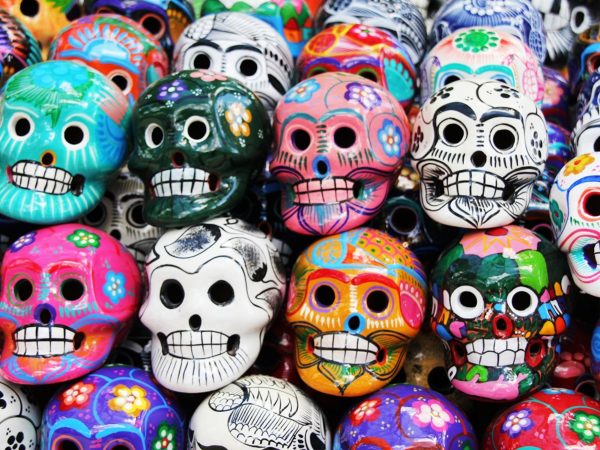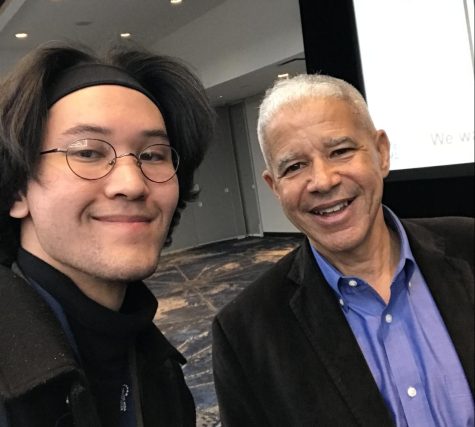A Life of Prostitution In Oakland

A number of business owners express little compassion for sex workers.
January 18, 2013
As night fell on the city of Oakland, a tall blond wearing an orange print mini-dress with matching spike heels walked the corners of 50th Avenue and East 14th Street.
“Poverty makes you do strange things,” the prostitute, who goes by the name of “Barbie,” said in an interview with The Pioneer.
“I came from Chicago when I was 13, found a job at McDonald’s, met a guy who promised me a home and a good life, but instead he became my pimp.”
She is now 25.
“Easy money and habit, makes me do it,” she added. “It is a risky job, yes this is a job. I’m very strict on picking my clients. I usually don’t go with Black men, I’m scared that they might be pimps or drug-dealers and would try to take control over me since I work for myself now. I also try to avoid white males, they lean to be undercover police officers.” Her best clients are Latinos, she said.
She is one of at least a dozen women who can be frequently seen on the street in this area. They are women of different ethnicities: Latina, African American, Asian and Caucasian.
“The majority of the streetwalkers in Oakland are African American,” said officer John Biletnikoff of the Oakland Police Vice unit.
Life is difficult. Barbie says she has been kicked out of several restaurants and is frequently verbally mistreated.
“Men be touching my butt all the time, I feel disrespected,” said another prostitute who would not reveal her ‘nickname.’ “I’m a hooker but that doesn’t mean I’m free,” she added.
The woman said she believes she is contributing to the community as an active consumer and does not think her profession is interfering with business.
Yet, prostitution in Oakland is forcing a confrontation between business owners, police and prostitutes themselves.
The Fruitvale District, located in East Oakland, is home to many businesses that have been there for years and whose owners claim to be drastically affected by the sex trade.
Some business owners complain that prostitution is scaring clients away and they want police to get more involved; others say that it is better to acknowledge prostitutes and say that they are potential clients that are constantly contributing to their business.
Police, for their part, say budget cuts force them to prioritize the crimes they chase down.
The prostitutes say poverty forces them to walk the streets; they say they are frequently harassed by various business owners.
Prostitution in the Fruitvale District runs from 7th Avenue to approximately 90th Avenue and East 14th Street. The area is a main hub that connects all the avenues in Oakland and also links this city to its neighbor San Leandro.
Nevertheless, a number of business owners express little compassion for sex workers. They want them as far away from their business as possible.
“I have found myself almost wrestling with prostitutes and their so-called ‘pimps’ to prevent them from entering my restaurant,” said Jose Espinoza, owner of a favorite Mexican restaurant in the Fruitvale District.
Espinoza’s family owns several restaurants in the same area, and they are displeased with the lack of police enforcement to on prostitution.
“I’m sick of reporting prostitutes; the police department does absolutely nothing when it comes to prostitution,” said Espinoza, arguing that there are times when he cannot even manage to stay open for business past 9 p.m. “It is like a parade of prostitutes after 10 p.m., and is just repugnant to witness their vulgar behavior. They scare my customers away.”

crimes they chase down.
Antonio Vasquez, another owner of a Mexican restaurant, is also disturbed by prostitution and says a motel next door to his restaurant is a large part of the problem.
“This motel is nothing but a home for prostitutes,” said Vasquez. “I’ve made several reports to the police regarding the motel next door. They were going to shut it once but apparently the hotel paid a fine and managed to stay open.
“I have also reported prostitution several times. But they don’t do much about it. I doubt that prostitution is a priority for the OPD,” added Vasquez.
Song Won, 40, is a businessman who, in contrast to Vasquez and Espinoza, says sex workers are important clients to his business.
“I’m not saying that I favor prostitution, but these girls are part of our community and it is better to befriend them instead of having them as enemies,” Won said.
“They come to my shop all the time, and spend a lot of money on beauty supplies. I’ve been here for more then 10 years and my business has been increasing ever since they started to purchase my merchandise,” said Won, adding that he can’t deny that prostitution can be a factor contributing to drugs and vandalism in the neighborhood.
A popular nail shop owner, who wished to remain anonymous, echoed Won’s statement.
“They are very potential clients, you just have to know how to deal with them,” she said. “These women want to look attractive and I own a nail shop in their work habitat, I have no choice but to serve them and make money off of them,” she said, adding she has lost some valuable customers because of her choice to serve prostitutes.
Meanwhile the police say they hear all the concerns, yet their budget cuts force them to make choices.
“Prostitution is a priority; however, a danger to life supersedes it,” said Daniel Baltazar, a police officer who patrols the area.
Prostitutes are treated as victims of crime and police want their cooperation to apprehend criminals – those who engage in human trafficking, Balthazar said.
“As patrol officers we approach them with courtesy and respect as with any other citizen, said Baltazar.
“We as the Oakland Police Department approach this issue with undercover operations and on-site counseling for the girls. The goal is to help them in the recovery phase and remove them from this lifestyle,” he added.
The Oakland Police Department is second in the country after Dallas to begin recognizing the sex workers as victims, Baltazar said. The agency works with Bay Area Women against Rape and other nonprofit organizations to make sure the prostitutes have advocates throughout their arrest and legal proceedings.
The Oakland Police Department and the District Attorney’s Office use several dedicated resources to address prostitution, Baltazar said.
The Heat Watch program, for example, trains child-serving professionals and community members to effectively respond to and combat commercial sexual exploitation in their jurisdictions. The Vice and Child Exploitation unit investigates all vice-crime-related incidents, as well as child prostitution, Internet crimes and human trafficking, Baltazar said.
Yet, not everyone is opposed to the presence of prostitution.
Raiden Montgomery, a Fruitvale District resident said, “Prostitution is the oldest profession and is part of every culture.” Montgomery, who is a Caucasian, said he does not feel threatened by prostitutes, but he is aware of them.
“I’m not against it; I just wish it was controlled, for these girls not to be walking all over East 14th.”















